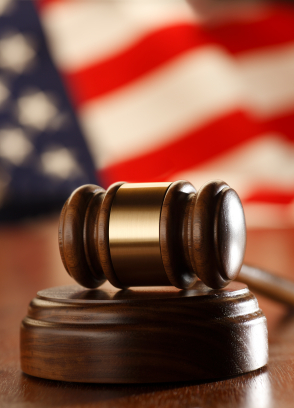
If the defendant is found guilty of driving under the influence, the court will proceed to sentencing. It is during the sentencing stage of a case that a person risks having his driver’s license revoked, and being incarcerated in jail.
As of 2019, the law in Illinois allows the judge to sentence the defendant to a term of supervision after a finding of guilt. The law will be the same in 2020. A sentence of court supervision is not a conviction, and this is important. The reason is, a conviction will cause the Secretary of State to revoke the defendant’s driving privileges as required by 625 ILCS 5/6-205(a)(2). Supervision does not have this outcome. As such, it is important to take advantage of court supervision when possible to prevent the revocation of driving privileges. However, court supervision can only be given once for a DUI charge. A repeat offender is not eligible for court supervision and can only receive a conviction for the offense.
During the term of supervision, the court “supervises” the defendant. During supervision, the court holds off on entering a judgment against the defendant. In this manner, a sentence of supervision is similar to a continuance or postponement of the case. Basically, if the defendant fulfills all the conditions of the sentencing order and does not violate the law, the court will dismiss the charges without a conviction.
The supervision statute reads as follows:
Discharge and dismissal upon a successful conclusion of a disposition of supervision shall be deemed without adjudication of guilt and shall not be termed a conviction for purposes of disqualification or disabilities imposed by law upon conviction of a crime.
See 730 ILCS 5/5-6-3.1(f).
In some of the collar counties, judges will require the defendant to appear again in court on the final day of supervision. For example, Boone County, DuPage County, Kane County, and Cook County all give the defendant a return date. Appearing is mandatory, and failure to appear can be construed as a violation of the supervision. Lake County does not assign defendants a return date.
But in some instances, something goes wrong during the defendant’s supervision.
When the defendant is accused of violating the terms of supervision, the State’s Attorney will file a motion in court asking the court to re-sentence the defendant. The motion is called a petition to revoke, or PTR for short.
In Cook County, a petition to revoke is referred to as a violation. These cases are placed on the violation call. A violation of supervision is shortened to VOS.
Whichever name is used to describe the petition, the proceedings are generally the same throughout Illinois.
The law says that, if the court finds that the defendant violated supervision, it can take no action, or re-sentence the defendant to a term of imprisonment. In fact, the court can re-sentence the defendant to the maximum sentence that was available when he first got supervision.
The statute governing petitions to revoke is 730 ILCS 5/5-6-4(e) and it reads:
If the court finds that the offender has violated a condition at any time prior to the expiration or termination of the period, it may continue him on the existing sentence, with or without modifying or enlarging the conditions, or may impose any other sentence that was available.
See id.
On re-sentencing, the court will typically revoke the defendant’s supervision and re-sentence him to a conviction, also known as Conditional Discharge, with the possibility of jail. In Cook County, a sentence of jail for violation of supervision is becoming more and more regular. As it is written, the only restriction on the judge’s authority to re-sentence the defendant is the maximum for that offense. DUIs are Class A misdemeanors and thus, the maximum is up to one year.
Once supervision is taken away and a defendant is placed on conditional discharge, this triggers the revocation of driving privileges. As discussed above, court supervision does NOT trigger a revocation of driving privileges since it is not a conviction. However, once supervision is taken away and the defendant is placed on conditional discharge, the Secretary of State will revoke the defendant’s driving privileges.
As a side note, a revocation is completely different from a suspension. When a suspension period ends, the defendant simply pays a reinstatement fee and can continue using his or her driver’s license. When a revocation occurs, the defendant must have a formal hearing with the Illinois Secretary of State and a written decision will be issued within 90 days. Only after receiving reinstatement after a formal hearing can one resume driving after a revocation.
Where the defendant fails to pay fines, fees and court costs, the prosecution will file a petition to revoke his supervision. A new arrest will also result in a petition to revoke. Failure to complete the ordered substance abuse treatment (eg, DUI classes) or perform community service will also result in a violation. A positive test for alcohol or drugs is a violation and can result in re-sentencing.
As one can see, there are numerous ways in which the defendant can be re-sentenced during supervision.
The fact is, on some first DUI cases, the judge refuses to give the defendant supervision to begin with. For example, in DuPage County, the State’s Attorney’s policy is to ask for a conviction on all first-time offenders, but the judges rarely go along with this recommendation. If the court goes along with this recommendation, then the defendant’s license would be revoked. Unfortunately there are counties where prosecutors ask for, and judges will grant their request, of a conviction for a first offender.
If the case involves aggravating factors such as an accident or additional charges, the court may not be inclined to sentence the defendant to supervision.

